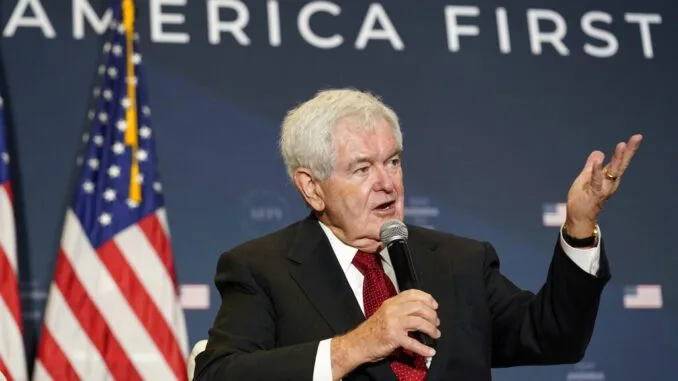
Since the Left has begun a push for race-based reparations — sometimes involving as much as $5 million per person — it occurred to me that there ought to be a healthy debate about the case for reparations for those whose ancestors and relatives died to free the slaves and end slavery as an institution.
Let me be clear: the whole concept of reparations is insane. It is virtually impossible to figure out who should be eligible. Who decides who gets paid and who doesn’t? And who is going to fund these high dollar payments?
However, if the Left wants to discuss reparations for victims of slavery, why are we not also talking about the millions of black, white, Native American, and other Union soldiers who put their lives on the line to bring slavery to an end?
2Many on the Left hate to admit it, but the primary instrument that ended slavery in the United States was the Union Army and Navy, with President Abraham Lincoln as commander-in-chief.
As historian Allen Guelzo wrote in The Wall Street Journal, “In the long catalog of books and articles by activists demanding reparations for slavery, I have yet to see any mention of the blood-costs of the war that ended it or even a hint that slavery required anything more for its abolition than some mysterious process of evaporation.”
The Emancipation Proclamation, signed by President Lincoln on January 1, 1863, proclaimed the end of slavery and the beginning of freedom for more than 3,500,000 slaves in the rebelling Confederate states. It was the decisive turning point in ensuring that slavery would disappear in the United States.
However, the instruments that turned the Emancipation Proclamation’s promise into a reality were the Union Army and Navy. If they had not endured terrible casualties and continued to fight, slavery would have survived, and the South would have successfully seceded.
The reality of both the moral nature of the Union cause — and Americans’ willingness to die for it — can be found in the original “Battle Hymn of the Republic,” which was a popular marching song used by the Union Army and sung by its supporters. Its key verse is as follows:
“In the beauty of the lilies Christ was born across the sea, With a glory in His bosom that transfigures you and me; As He died to make men holy, let us die to make men free, While God is marching on.”
After the war, a peacetime version changed the line from “let us die to make men free” to “let us live to make men free.” But the edited line misses the central moral point of the verse; Union soldiers willingly marched toward the possibility of their death to win the war, preserve the Union, and free the slaves.
At Gettysburg in November 1863, President Lincoln made the case that the Civil War was a moral cause. Yet he made clear that the preservation of the Union and its commitment to freedom for all people required enormous sacrifice.
“[T]hose who here gave their lives that that nation might live. It is altogether fitting and proper that we should do this. But in a larger sense we cannot dedicate, we cannot consecrate, we cannot hallow this ground. The brave men, living and dead, who struggled here have consecrated it, far above our poor power to add or detract. The world will little note, nor long remember, what we say here, but it can never forget what they did here. It is for us the living, rather, to be dedicated here to the unfinished work which they who fought here have thus far so nobly advanced. It is rather for us to be here dedicated to the great task remaining before us, that from these honored dead we take increased devotion to that cause for which they gave the last full measure of devotion, that we here highly resolve that these dead shall not have died in vain, that this nation, under God, shall have a new birth of freedom, and that government of the people, by the people, for the people, shall not perish from the earth.”
In fact, the war would go on for another grueling year and a half.
The Civil War was America’s bloodiest war. The number of Americans killed in the Civil War nearly matches the death toll of all our other wars combined.
There were 2,128,948 Union soldiers fighting to end slavery, approximately 179,000 of whom were black. Moreover, 364,511 Union soldiers were killed and an estimated 40,000 of them were black.
It is impossible to talk seriously about the victims of slavery without recognizing the Union soldiers. The sacrifices and challenges that these soldiers faced cannot be overlooked.
Every time the Left discusses righting America’s past wrongs for the evil institution of slavery, people should propose including the descendants of the Union Army and Navy. This line of reasoning exposes how absurd the entire concept of reparations for slavery really is.
Watch the Left drop the topic and shift to a new excuse to transfer wealth.


